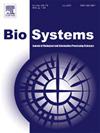Coacervates meet the RNP-world: liquid-liquid phase separation and the emergence of biological compartmentalization
IF 1.9
4区 生物学
Q2 BIOLOGY
引用次数: 0
Abstract
Understanding the emergence of biological compartmentalization in the context of the primordial soup is essential for unraveling the origin of life on Earth. This study revisits the classical coacervate theory, examining its historical development, supporting evidence, and major criticisms. Building upon Alexandr Oparin's foundational ideas, we propose an updated perspective in which the first biological compartments emerged through the formation of ribonucleoprotein (RNP) condensates—complexes of intrinsically disordered peptides and RNAs—via liquid-liquid phase separation (LLPS). Drawing on contemporary insights into how LLPS mediates intracellular organization, we argue that such membraneless RNP-based aggregates could have facilitated biochemical reactions in the aqueous environments of early Earth. By reinterpreting Oparin's coacervates through the lens of modern molecular biology, this study offers a renewed framework for understanding the origin of biological compartmentalization within the RNP-world hypothesis.
凝聚满足rnp世界:液-液相分离和生物分区化的出现
在原始汤的背景下理解生物分区的出现对于揭示地球上生命的起源至关重要。本研究回顾了经典凝聚理论,考察了其历史发展、支持证据和主要批评。基于alexander Oparin的基本思想,我们提出了一个更新的观点,其中第一个生物区室是通过液-液相分离(LLPS)形成核糖核蛋白(RNP)凝聚物-内在无序肽和rna的复合物-而出现的。根据对LLPS如何介导细胞内组织的当代见解,我们认为这种基于rnp的无膜聚集体可能促进了早期地球水环境中的生化反应。通过从现代分子生物学的角度重新解释Oparin的凝聚,本研究为理解rnp世界假说中生物区隔的起源提供了一个新的框架。
本文章由计算机程序翻译,如有差异,请以英文原文为准。
求助全文
约1分钟内获得全文
求助全文
来源期刊

Biosystems
生物-生物学
CiteScore
3.70
自引率
18.80%
发文量
129
审稿时长
34 days
期刊介绍:
BioSystems encourages experimental, computational, and theoretical articles that link biology, evolutionary thinking, and the information processing sciences. The link areas form a circle that encompasses the fundamental nature of biological information processing, computational modeling of complex biological systems, evolutionary models of computation, the application of biological principles to the design of novel computing systems, and the use of biomolecular materials to synthesize artificial systems that capture essential principles of natural biological information processing.
 求助内容:
求助内容: 应助结果提醒方式:
应助结果提醒方式:


